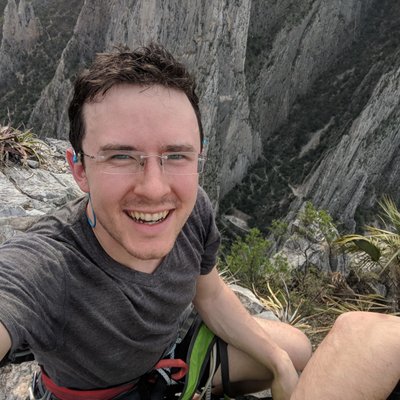 Microconf Recap
Microconf Recap
Idea to validation to launch: the first 365 days of Tuple
Ben Orenstein
Co-founder and CEO of @PairWithTuple. Host of @artofproductpod.

One year ago, Ben was working for someone else. He felt like his destiny was to run a software company, so he left his job. He only had two problems:
- no idea
- no cofounder
He found his cofounder with his friend Joel Sutherland, who was getting tired of working for a big company and was ready for something else.

Ben found his idea in replacing a screen sharing app that got rolled into Slack poorly.

Ben scheduled a call with the founder of ScreenHero, Faraz Khan, to get a better understanding of the market challenges.
Ben and Joel were ready to go, when serendipitously one of Faraz Khan's previous hires, Spencer, contacted Faraz saying he was looking for a job.
This was a fantastic opportunity, but Ben was feeling anxious about bringing on a partner that he didn't know super well.
Ben's mom pointed out that Joel also wanted to bring Spencer on.
They decided on a name - Tuple - which means "bringing two things together" in computer science (and kind of sounds like "two people").




Ben got Tuple redesigned by Steve Schoger, who he met at Microconf. Several of his first customers were friends from Microconf. He started selling annual plans for software that didn't exist yet.
Ben made his first presale at $149 to Adam Wathan - a reasonable first guess. The next person he presold he asked $199, and sold it. Next he asked for $249, and that also sold.
Wondering how high he could go, he tried a binary search and bumped up the price to $549 knowing it wouldn't sell, but it did! The highest price someone said yes to, per seat, was $749.
Without doing this pricing experimentation, Ben would've been stuck asking for $149.
Ben launched his first alpha on January 7th, and it went super well.
The rest of January was spent working on some fundamentals, like resetting passwords and creating user accounts. February was all about reducing the number of crashes and dropped calls.
In March, Ben had the realization that he wasn't building a SOFTWARE company, he was building a software COMPANY.
Highs and lows
Ben had someone reach out to him asking to try Tuple late in the day on Friday. Ben was feeling cheeky, so he said "I'm free in 15 minutes if you bring your credit card and promise to pay for it if it's awesome." The person agreed, so Ben pushed a new feature to use for the demo and got on the call.
The demo was really rough. Tuple crashed several times and Ben was feeling really distraught. At the end of the call (finished on Skype instead of ScreenHero), Ben knew he'd failed the demo, and let the person know that he'd just pushed a new feature and Tuple wasn't usually that buggy.
Surprisingly, the person said "cool, I trust you. I'll sign up!" It was the quickest shift from a low to a high Ben had ever experienced. After the sale, Ben got an email that
TODO: dual mouse story
Helpful ingredients
- savings: Ben and his cofounders had been saving cash for years, which meant they all had runway saved up to work on Tuple.
- an audience: Ben has been nurturing his audience of developers for years, trying to be useful on the internet.
- relevant skills: Ben had been working on useful and marketable skills for years, so he was ready for Tuple when the opportunity came up.
- practice companies: Ben has been practicing getting money from people on the internet for years. His first product was vim for rails developers, a super niche product that helped him get more comfortable with internet businesses.
- ask for what you want

Questions
How did you know this was going to be a profitable business before you'd talked to customers?
We cheated a little bit, because we're replacing a product that people loved that went away. It felt 60% validated.
We were able to precharge someone $6k, so the only risk was that we would miss their expectations.
What do you think your process would've looked like if you hadn't brought on your third cofounder, Spencer?
Spencer is the most relentless founder with the best work ethic. With Joel and Spencer writing code, I felt free to do marketing: preselling, going on podcasts, etc.
How do you recommend getting started building an audience?
I started building an audience of programmers because I love programmers and I love teaching. Try to find a medium to help people on the internet that works for you. Recording a podcast every week feels like no work.
How hard is it for you to be working on the business, sales, and marketing instead of code?
It was hard at first, but I love learning new things. The steep part of the learning curve is fun. Sales and marketing is one of those. Testing pricing was fun for me! It was a nerdy thing that spits out money if you do it right.
Check out Ben's podcast The Art of Product, and contact him @r00k
Free "Microconf Recap" eBook
I'm sending out a beautiful PDF eBook of notes from every MicroConf Starter and Growth talk – both Speaker and Attendee. Want a copy?

